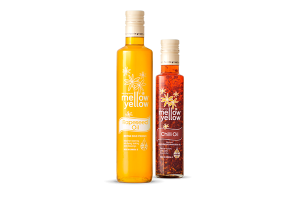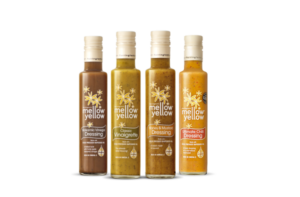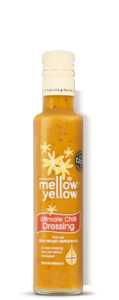Here at Farrington Oils, we were incredibly proud to become the world’s first company to be certified as both carbon and plastic neutral earlier this year. As a small company, we were over the moon to have achieved a world-first! Especially as this ground-breaking achievement acknowledged our environmental credentials, something we all are very passionate about. As a business, Farrington Oils is now carbon and plastic neutral, so as employees we all felt that we could and should be measuring our personal carbon & plastic footprints and working to reduce our environmental impact.
Here we have a look at various members of the Farrington’s teams personal carbon and plastic footprints and hear how they have been working to reduce their environmental impact…
Rachel, Sales
Carbon: 5.04tonnes
Plastic: 69.59kg
I like to think I am a fairly careful person and try to avoid waste where I can, I like to cook from scratch, keep an eye on the heating and hot water and switch off lights that aren’t being used. With so much information in the media and with Duncan talking more about it at work, I have realised there is a lot that me and my family can do, small changes will add up to make a significant difference.
I’m a big tea drinker and at home fill the kettle and then work my way through the water in the kettle during the day, I was shocked when I realised how wasteful I was being with this and now only heat the water I need each time. I am gradually changing my family meals, we are already quite healthy but I want to move to a more sustainable diet, so we are eating more meat free meals, buying British meat from the local butcher whenever we can, and eating more fish from a sustainable source.
My plastic footprint was a big surprise – I eat a lot of fruit, salad and vegetables from the supermarket which are packed in plastic. I’ve found a link on my local council’s website to the company they use for our recycling and very detailed information on what can and can’t be recycled so I’m going to use this to improve the amount of packaging I recycle and to help make decisions when buying items based on their packaging. My local school has a recycling collection point for toothbrushes, toothpaste tubes and crisp packets too which I have started to use.
I’ve learnt recently that plastic bags can be reused until they wear out and use 3 time less energy than paper bags and 113 times less energy than cotton bags to make, they were invented for reuse but as a society we have decided to treat them like single use items rather than seeing the value in them, so I am also trying to focus more on the ‘reuse’ part of ‘reduce, reuse, recycle’.
Emily, Sales
Carbon: 8.21tonnes
Plastic: 64.28kg
I was really surprised that both my carbon and plastic footprint were so high. I no longer use single use plastic drinks and use refillable cups and water bottles. I buy food in larger packs, batch cook and freeze to reduce waste. I could go to a butcher that supplies meat in brown wrapping paper, but my local butcher uses plastic bags, which aren’t recyclable. I think producers, shops and supermarkets need to continue to work on giving consumers more sustainable options. I also ensure that all my electric appliances are A grade and all my light bulbs are low energy.
Becs, Technical
Carbon: 9.23tonnes
Plastic: 58.63kg
I have a lifelong interest in sport and health and in recent years the natural progression from this has been to extend into a consideration for the environment and sustainability through an appreciation for energy expenditure and time spent enjoying the outdoors on my feet or bike. Though I have also recently come to realise that I have a genetic trait to see the value in all things and materials based on an unwanted tendency to hoard!
Sustainability was a factor in my decision to become vegetarian 10 years ago and also attracted me to working at Farrington Oils. At times my other interests such as seeing more of the world conflict with sustainability – international travel is definitely the largest of my footprints. I will make a conscious effort look at options to reduce this / offset in the future. On a smaller scale I am lucky that I enjoy cycling will continue to commute to work by bike (a 25 mile round trip) when I can – aiming for an average of twice per week over the year.
My next effort will be to reduce my consumption of convenience drinks whether hot or cold. With good planning I should be able to reduce this, though I will struggle to not see a convenience drink as a treat and will need to be creative to find ways to achieve this sustainably.
Gina, Marketing
Carbon: 5.91tonnes
Plastic: 44.73kg
My house is the highest part of my carbon footprint. Being a very old house with a fairly old boiler, it probably isn’t the most energy efficient. But I have had a smart meter and smart thermostat installed so I can keep a track of energy usage and ensure the heating is not on when it isn’t needed.
I’ve been trying to reduce the plastic footprint of my food shops by making much more from scratch. During the colder months, I make soup each week for my lunches (storing it in reusable containers), I’ve been making my own sourdough bread (with flour bought from a refill shop near to my house) and generally trying to make as much from scratch as I possibly can so I only need to buy fresh ingredients which helps reduce packaging (especially when buying loose fruit and veg). I have also swapped my shampoo in plastic bottles for plastic-free, vegan shampoo bars from Lush.
I now take a reusable water bottle and reusable coffee cup out with me so I never need to buy drinks in disposable packaging. Once you get into the habit of doing things like this, it’s actually super easy, plus, many coffee shops offer discounts when you use your own cup!


Living sustainably is important to all members of our team, we even have Steve and Kevin lift sharing every day to halve the carbon footprint of their commute and Jo drives an electric vehicle to work a few days a week and has purchased an electric bike to cycle to work in the warmer months. Of course, Duncan’s commute is the most environmentally friendly, as he walks 5 minutes from his front door to the office, truly net-zero!
As we all work to continue to reduce our carbon and plastic footprints, plus produce our award-winning carbon & plastic neutral cold pressed rapeseed oil and dressings, we hope to see more companies taking these steps to look after our environment! If you would like to work out your own environmental impact, the carbon footprint calculator is here and the plastic footprint calculator is here. Let us know your sustainable tips by getting in touch on Facebook, Instagram, Twitter or email.

 Oils
Oils Rapeseed Oil
Rapeseed Oil Chili Oil
Chili Oil Dressings
Dressings Classic Vinaigrette
Classic Vinaigrette Balsamic Dressing
Balsamic Dressing Honey & Mustard
Honey & Mustard Ultimate Chilli Dressing
Ultimate Chilli Dressing